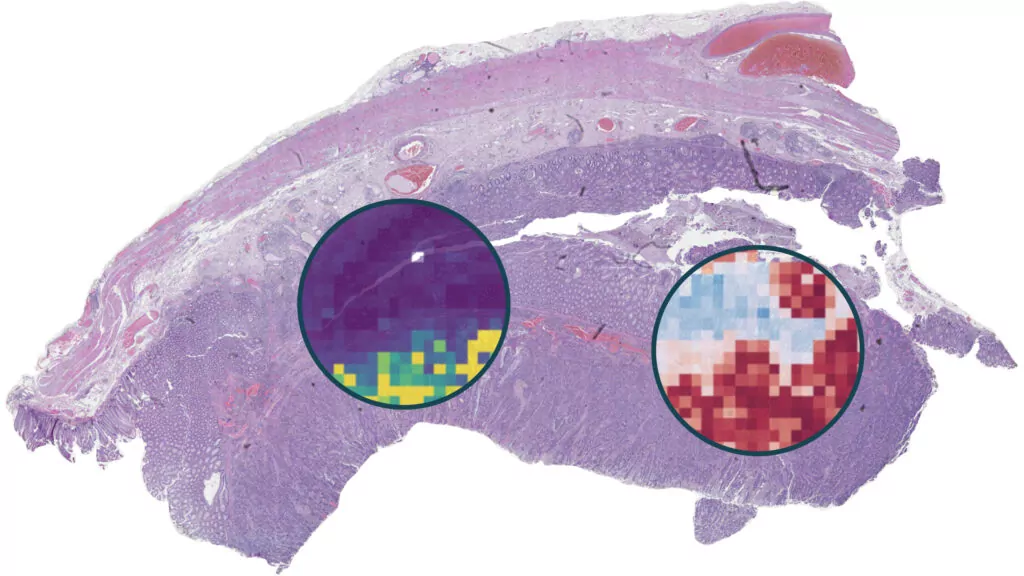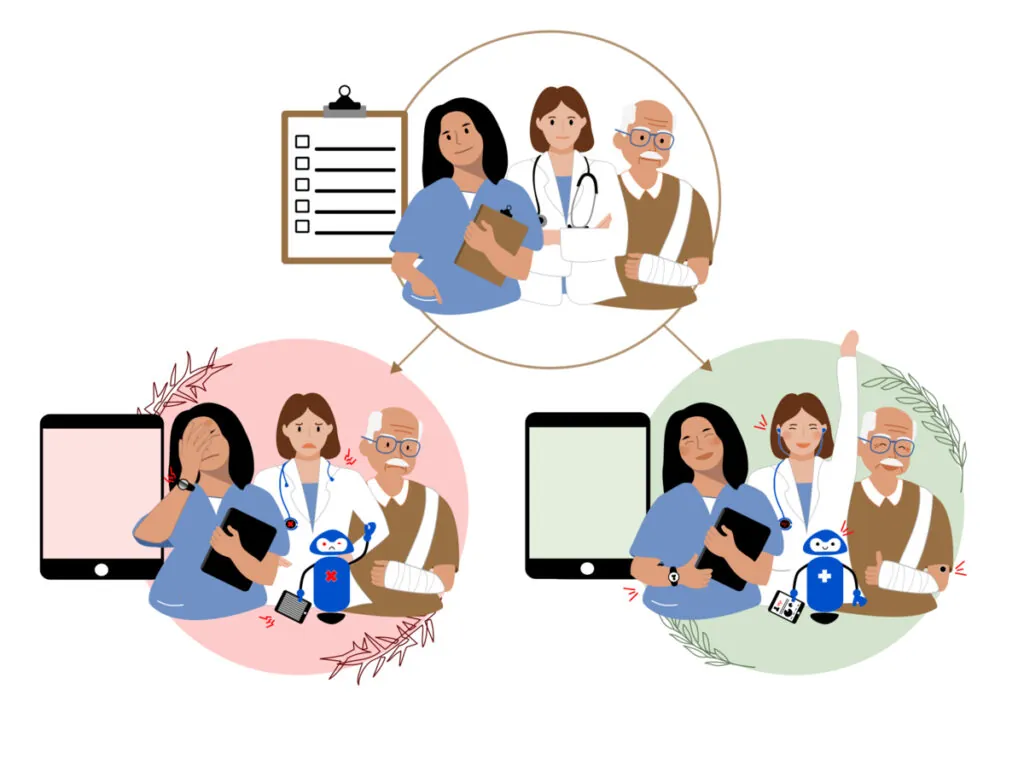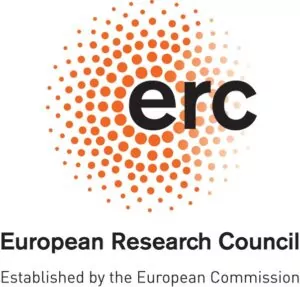AI-generated synthetic data for cancer research and clinical trials
Colorectal cancer (CRC) ranks second in leading causes of cancer-related deaths globally, according to the WHO. For the first time, researchers from Helmholtz Munich and the University of Technology Dresden (TU Dresden) show that artificial intelligence (AI)-based predictions can deliver comparable results to clinical tests on biopsies of patients with CRC. AI predictions can speed up the analysis of tissue samples, resulting in faster treatment decisions. This novel model for biomarker detection represents a significant stride towards the realization of precision therapy approaches in the field of oncology. The method is now published in Cancer Cell.
A team of scientists around Dr. Tingying Peng from Helmholtz Munich and Prof. Jakob N. Kather from TU Dresden show that AI can predict specific biomarkers in stained tissue samples of patients with CRC. They used so-called transformer networks, a recent deep learning (DL) approach, to identify patterns and support diagnostic decisions in cancer management. The new method significantly improves previous approaches for biomarker detection.
Large-Scale Evaluation Proves Better Generalization and Data-Efficiency
The team of researchers developed software that uses the new technology of transformer neural networks throughout the analysis process. They show that their approach substantially improves the performance, generalizability, data efficiency, and interpretability by evaluating it on a large multicentric cohort of over 13,000 patients from 16 cohorts from seven countries (Australia, China, Germany, Israel, Netherlands, UK, USA), part of which was contributed by researchers at the German Cancer Research Center (DKFZ) Heidelberg and the network of the National Centers for Tumor Diseases (NCT). The algorithm trained on the large multicentric cohort achieves a very high sensitivity on resection tissue samples obtained during surgery. Strikingly, even though their model has only been trained on tissue samples from resections, the results can reach also a high performance on biopsy tissue obtained during colonoscopy.
Sophia J. Wagner, the first author of the study, emphasizes that “the applicability to biopsy tissue increases the algorithm’s benefit for the patient when ultimately implemented in clinical routine”.
AI-Based Pre-screening for Biopsies Accelerate Diagnosis
Because of its high sensitivity on biopsy tissue, the algorithm could serve as a pre-screening tool followed by affirmative testing for cases that received a positive result during AI testing. Applying AI-based biomarker prediction could reduce the testing burden and therefore speed up the step between taking the biopsy and the molecular determination of the genetic risk status, thus enabling an earlier patient treatment with immunotherapy if indicated.
Publication in Cancer Cell
Sophia J. Wagner, Daniel Reisenbüchler, Nicholas P. West, Jan Moritz Niehues, Jiefu Zhu, Sebastian Foersch, Gregory Patrick Veldhuizen, Philip Quirke, Heike I. Grabsch, Piet A. van den Brandt, Gordon G. A. Hutchins, Susan D. Richman, Tanwei Yuan, Rupert Langer, Josien C. A. Jenniskens, Kelly Offermans, Wolfram Mueller, Richard Gray, Stephen B. Gruber, Joel K. Greenson, Gad Rennert, Joseph D. Bonner, Daniel Schmolze, Jitendra Jonnagaddala, Nicholas J. Hawkins, Robyn L. Ward, Dion Morton, Matthew Seymour, Laura Magill, Marta Nowak, Jennifer Hay, Viktor H. Koelzer, David N. Church, TransSCOT consortium, Christian Matek, Carol Geppert, Chaolong Peng, Cheng Zhi, Xiaoming Ouyang, Jacqueline A. James, Maurice B. Loughrey, Manuel Salto-Tellez, Hermann Brenner, Michael Hoffmeiste, Daniel Truhn, Julia A. Schnabel, Melanie Boxberg, Tingying Peng, Jakob Nikolas Kather (2023): Transformer-based biomarker prediction from colorectal cancer histology: A large-scale multicentric study. Cancer Cell. https://doi.org/10.1016/j.ccell.2023.08.002
About the scientists
- Sophia J. Wagner, PhD candidate at the Peng Lab at Helmholtz Munich and at Helmholtz AI, Munich, Germany
- Dr. Tingying Peng, Principal Investigator for AI for Microscopy at Helmholtz Munich and at Helmholtz AI, Munich, German
- Prof. Dr. Jakob Nikolas Kather, Professor at the Else Kröner Fresenius Center for Digital Health (EFFZ), University of Technology Dresden, Dresden, Germany
SEMECO
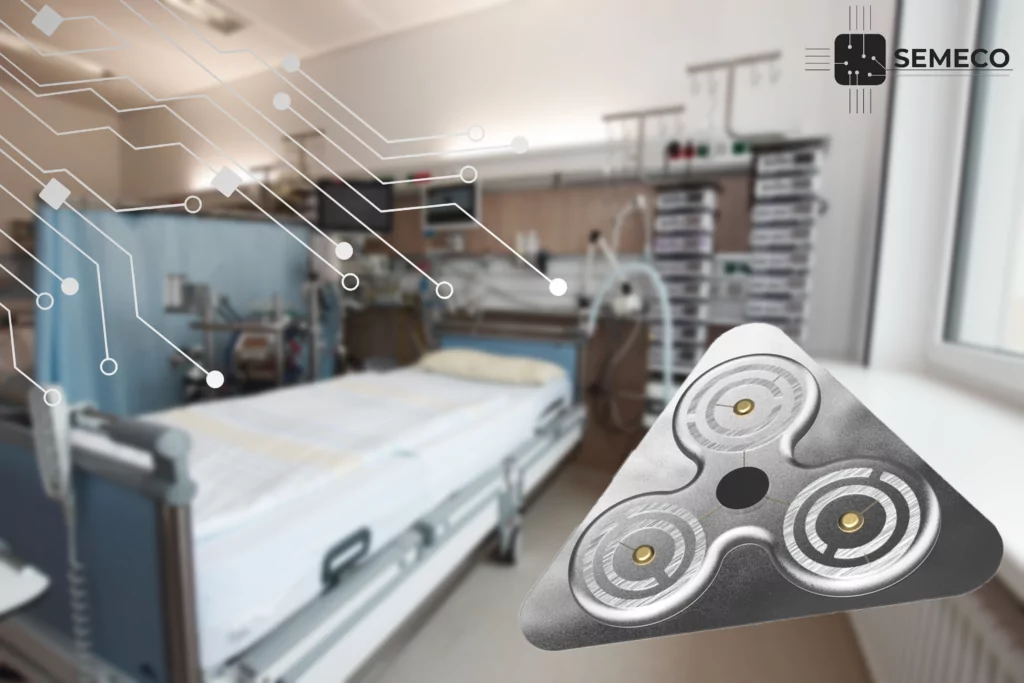
Secure Medical Microsystems and Communications
KIMEDS
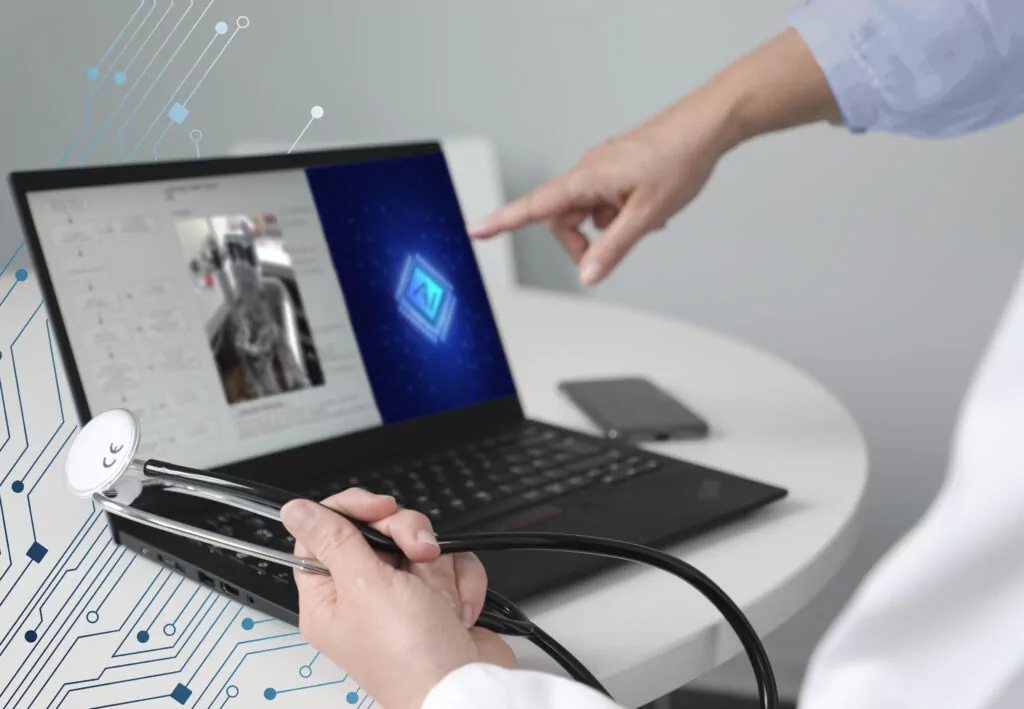
AI assisted certification of medical software
IntelliLung
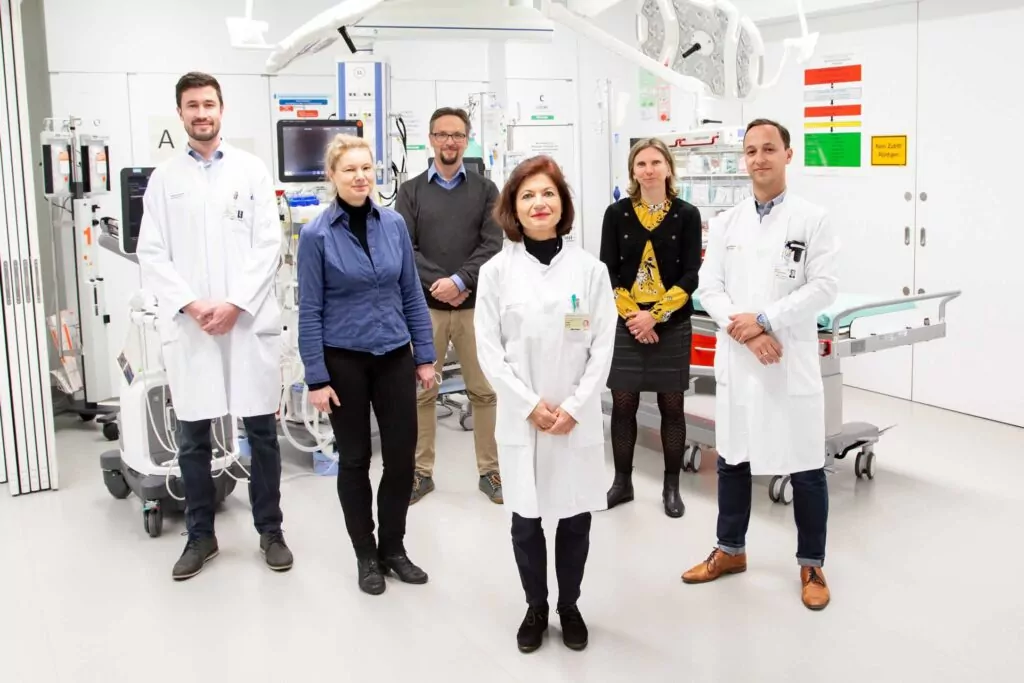
Artificial intelligence to help optimize ventilation of intensive care patients.
More News
Carl Gustav Carus Awards for three EKFZ affiliated young researchers


